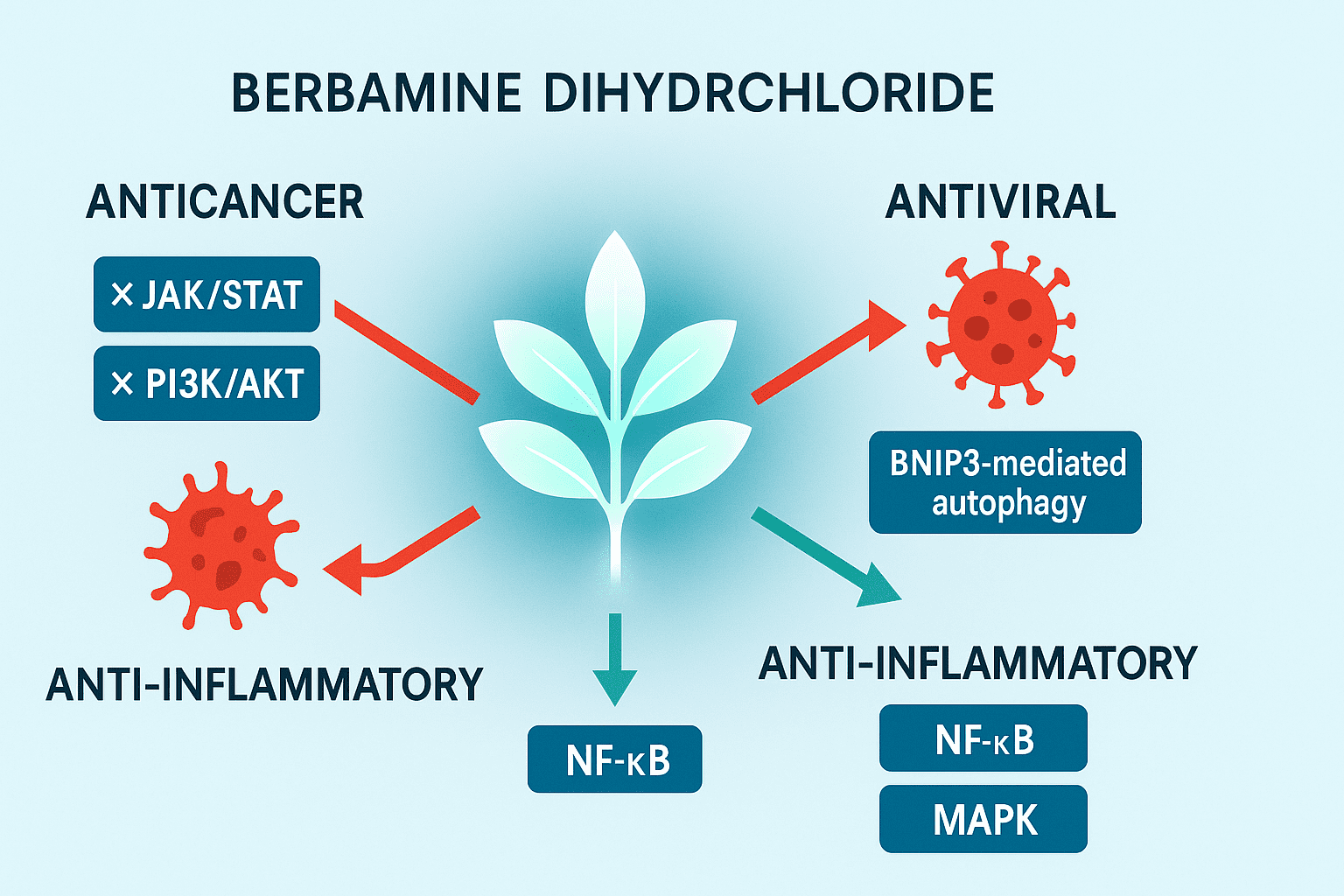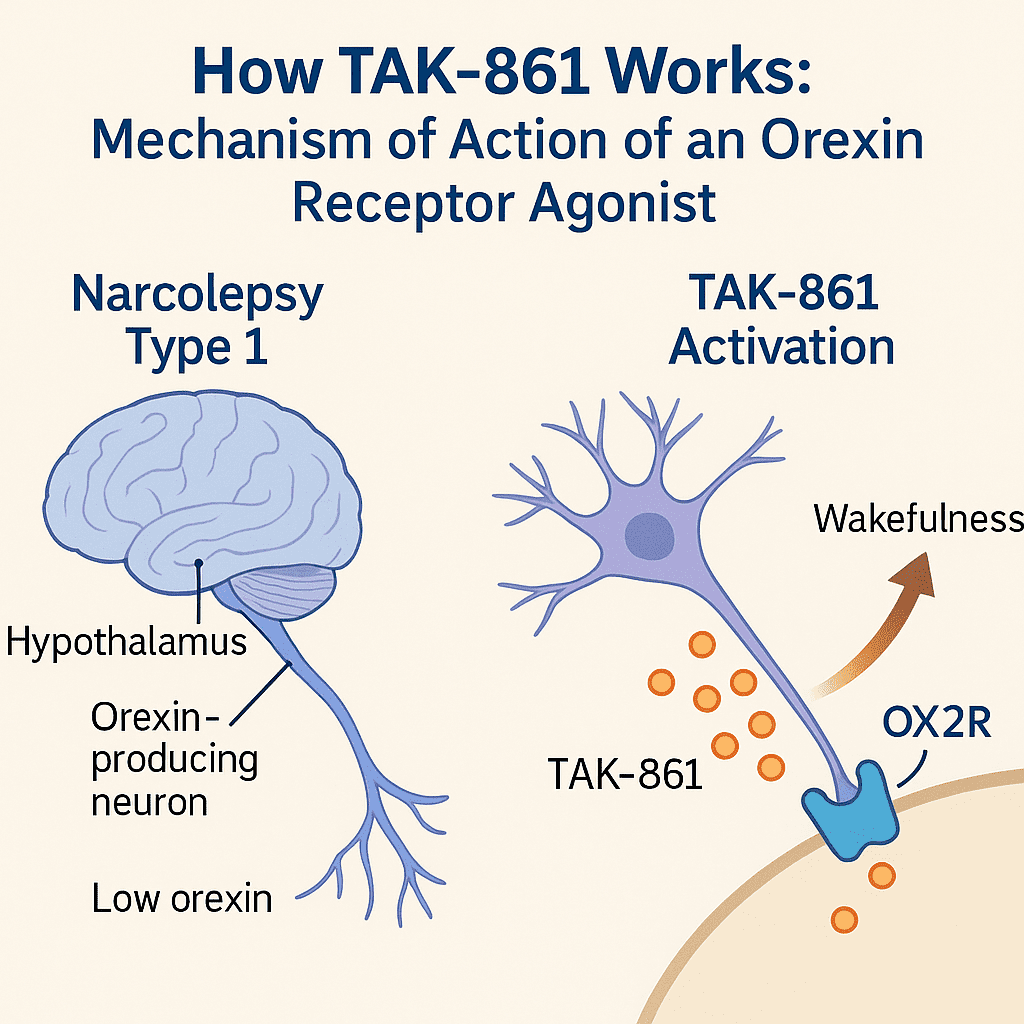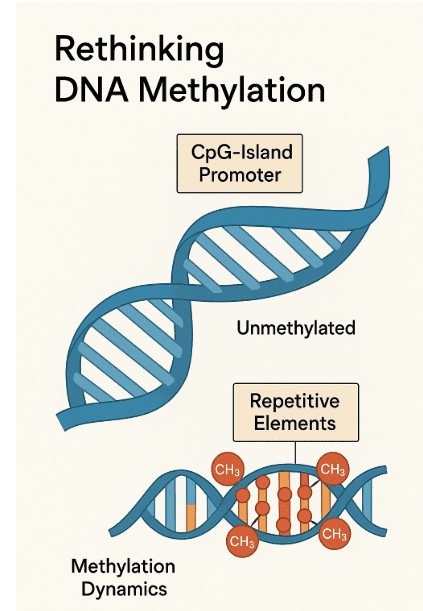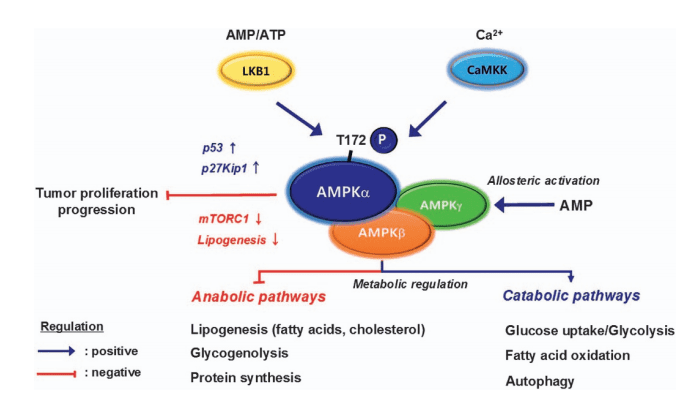Inavolisib: A Breakthrough in Cancer Treatment and PI3K Inhibitio
Abstract
Inavolisib is a promising PI3K-alpha selective inhibitor under investigation for its potential in treating cancers that depend on the PI3K pathway. By targeting the PI3K-alpha isoform, Inavolisib disrupts the signaling cascade that promotes tumor cell growth and survival. This targeted approach aims to reduce the side effects associated with broader PI3K inhibition. Clinical trials have shown favorable results, particularly in cancers like breast, ovarian, and non-small cell lung cancer, where PI3K pathway mutations are prevalent. Inavolisib is also being explored in combination with other therapies to enhance its efficacy and address potential resistance mechanisms. This article discusses Inavolisib’s mechanism of action, clinical trial outcomes, potential applications, safety profile, and its future in cancer therapy.
Introduction
Inavolisib is an experimental cancer treatment that works by inhibiting the PI3K (phosphoinositide 3-kinase) pathway, specifically targeting the PI3K-alpha isoform. This pathway is critical in regulating cell growth, survival, and metabolism. By blocking this pathway, Inavolisib aims to stop the growth of cancer cells, making it an important potential treatment option for various cancers.
As cancer therapies evolve, targeted treatments like Inavolisib represent a shift towards precision medicine, where therapies are tailored to target specific molecular abnormalities within cancer cells. Inavolisib’s ability to inhibit PI3K-alpha offers a potential new weapon in the fight against cancers that rely on this pathway to thrive.
What is Inavolisib?
Inavolisib is a small molecule drug that selectively inhibits PI3K-alpha, one of the key components in the PI3K/AKT/mTOR signaling pathway. This pathway is often hyperactivated in cancer cells, driving abnormal growth and survival. By targeting the PI3K-alpha isoform, Inavolisib aims to block the signaling that fuels cancer cell proliferation.
The PI3K signaling pathway is crucial for cell metabolism, survival, and proliferation. Inavolisib blocks the PI3K-alpha isoform, disrupting this pathway and potentially causing the death of cancer cells. This selective inhibition helps minimize damage to normal cells, making Inavolisib a promising candidate for targeted cancer therapy.
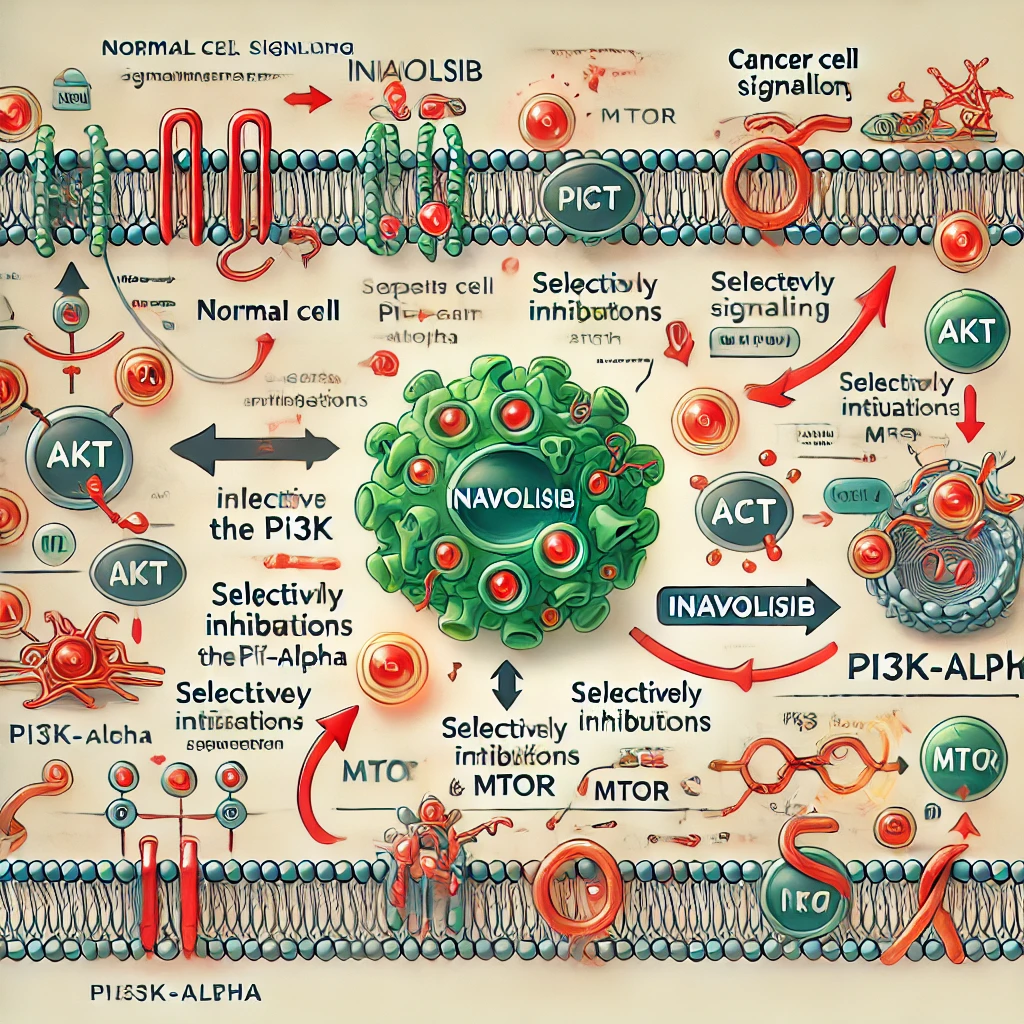
PI3K is a group of enzymes that play a vital role in regulating a variety of cellular functions. In cancer, mutations or amplifications in the PI3K pathway often result in uncontrolled cell growth and survival. By targeting the alpha isoform of PI3K, Inavolisib aims to specifically address these issues, providing an effective, targeted treatment for cancer.
How Does Inavolisib Work?
PI3K Pathway and Cancer:
The PI3K pathway is crucial for normal cell function but becomes problematic when mutated in cancer cells. PI3K activates a downstream pathway (AKT/mTOR), promoting cell survival, growth, and metabolism. In many cancers, this pathway is overactive, leading to unchecked cell division and resistance to apoptosis (programmed cell death).
Targeting PI3K-alpha:
There are several isoforms of PI3K, but PI3K-alpha is often the primary isoform involved in driving cancer progression. Unlike other PI3K inhibitors, Inavolisib selectively targets PI3K-alpha, minimizing potential off-target effects on other isoforms. By blocking PI3K-alpha, Inavolisib halts the downstream signaling that leads to cancer cell growth and resistance to treatment.
Inavolisib’s Specific Action:
Inavolisib binds to the PI3K-alpha isoform, inhibiting its activity. As a result, it blocks the activation of AKT, a key molecule in promoting cancer cell survival and proliferation. This action disrupts the cancer cell’s ability to maintain its survival mechanisms, leading to reduced tumor growth and, in some cases, tumor shrinkage.
Clinical Trials and Research on Inavolisib
Inavolisib is currently undergoing clinical trials to evaluate its efficacy and safety in treating various cancers, including solid tumors like breast, ovarian, and lung cancer, as well as hematologic cancers such as lymphoma. These trials are focused on assessing how well Inavolisib works both as a monotherapy and in combination with other cancer treatments.
Initial results from Phase I and Phase II clinical trials show that Inavolisib has promising efficacy in patients with certain cancers, particularly those with mutations in the PI3K pathway. In these trials, Inavolisib demonstrated the ability to shrink tumors and improve progression-free survival rates. While more extensive trials are needed, early results suggest that Inavolisib may offer significant therapeutic benefit for these patients.
When compared to other PI3K inhibitors like Idelalisib (a drug approved for CLL) and Copanlisib, Inavolisib’s selectivity for PI3K-alpha may offer a better safety profile and efficacy in tumors dependent on this specific isoform. The specificity of Inavolisib may help reduce side effects associated with broader PI3K inhibition, which can affect normal cells as well.
Potential Applications of Inavolisib
Inavolisib shows potential for treating various cancers, including breast cancer, ovarian cancer, and non-small cell lung cancer (NSCLC), which often feature PI3K pathway mutations. By targeting the pathway that fuels these cancers, Inavolisib could become an important tool in the fight against these aggressive diseases.
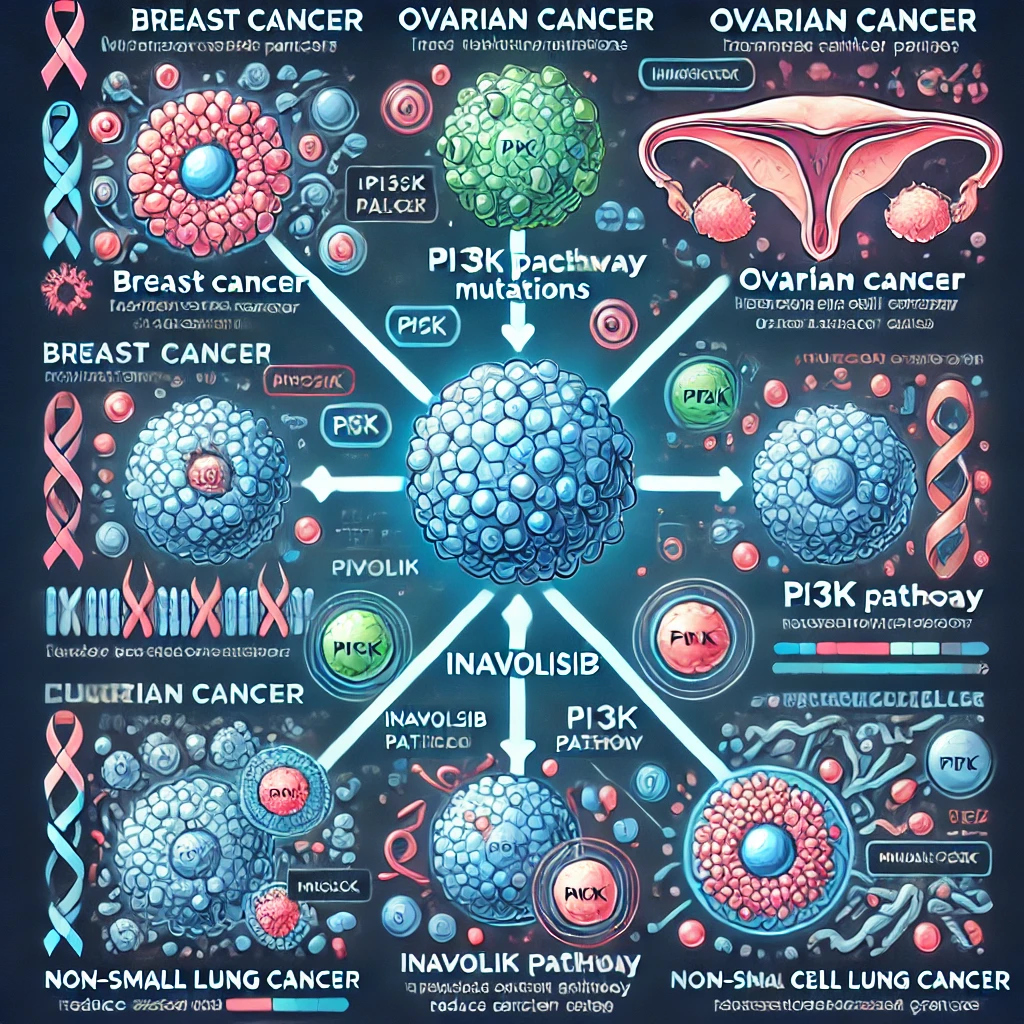
Inavolisib fits into the broader framework of precision oncology, where treatment is customized based on genetic and molecular profiles. Patients whose cancers have mutations in the PI3K pathway are the ideal candidates for treatment with Inavolisib, offering a tailored therapeutic approach.
In addition to cancer, researchers are exploring the potential of Inavolisib in treating other conditions where PI3K plays a role, such as autoimmune diseases or metabolic disorders, although these uses are still in the early stages of investigation.
Safety and Side Effects
Common Side Effects
Like most cancer treatments, Inavolisib comes with a risk of side effects. Common side effects in clinical trials have included fatigue, diarrhea, nausea, and rash. These side effects are typical of many targeted therapies, but their severity is generally lower compared to traditional chemotherapy.
Safety Profile
So far, Inavolisib appears to have a manageable safety profile, especially given its selective targeting of PI3K-alpha. However, patients undergoing treatment with Inavolisib need to be monitored for potential liver toxicity and infections, which can occur with PI3K inhibitors.
Compared to other PI3K inhibitors, Inavolisib is considered to have a favorable safety profile. For example, Copanlisib and Idelalisib can cause more severe immune-related side effects, while Inavolisib’s selective action may mitigate some of these risks.
The Future of Inavolisib
As of now, Inavolisib is still undergoing clinical trials and has not yet received regulatory approval. However, its promising data could pave the way for FDA approval in the near future. Researchers continue to evaluate its effectiveness in both monotherapy and in combination with other treatments.
Further clinical studies are exploring the combination of Inavolisib with other targeted therapies, immunotherapies, and chemotherapy agents to determine if these combinations can increase the drug’s effectiveness and overcome resistance mechanisms.
Inavolisib represents a new wave of targeted therapies that could significantly alter the way cancer is treated, offering more precise and effective treatments with fewer side effects than traditional chemotherapy. It could become a cornerstone of personalized cancer therapy.
Conclusion
Inavolisib is an exciting new drug that targets the PI3K-alpha isoform to inhibit the growth and survival of cancer cells. Its role in cancer treatment, particularly for tumors dependent on the PI3K pathway, could transform oncology.
As clinical trials continue, Inavolisib’s potential to provide an effective, targeted treatment for a range of cancers becomes clearer. With its promising results, it may soon become a key player in the fight against cancer, offering new hope for patients with difficult-to-treat cancers.
Referencs
Hanan EJ, Braun MG, Heald RA, MacLeod C, Chan C, Clausen S, Edgar KA, Eigenbrot C, Elliott R, Endres N, Friedman LS, Gogol E, Gu XH, Thibodeau RH, Jackson PS, Kiefer JR, Knight JD, Nannini M, Narukulla R, Pace A, Pang J, Purkey HE, Salphati L, Sampath D, Schmidt S, Sideris S, Song K, Sujatha-Bhaskar S, Ultsch M, Wallweber H, Xin J, Yeap S, Young A, Zhong Y, Staben ST. Discovery of GDC-0077 (Inavolisib), a Highly Selective Inhibitor and Degrader of Mutant PI3Kα. J Med Chem. 2022 Dec 22;65(24):16589-16621. doi: 10.1021/acs.jmedchem.2c01422. Epub 2022 Dec 1. PMID: 36455032.
Blair HA. Inavolisib: First Approval. Drugs. 2025 Feb;85(2):271-278. doi: 10.1007/s40265-024-02136-y. Epub 2025 Jan 28. PMID: 39873916.
https://pubs.acs.org/doi/abs/10.1021/acs.jmedchem.2c01422
Song KW, Edgar KA, Hanan EJ, Hafner M, Oeh J, Merchant M, Sampath D, Nannini MA, Hong R, Phu L, Forrest WF, Stawiski E, Schmidt S, Endres N, Guan J, Wallin JJ, Cheong J, Plise EG, Lewis Phillips GD, Salphati L, Heffron TP, Olivero AG, Malek S, Staben ST, Kirkpatrick DS, Dey A, Friedman LS. RTK-Dependent Inducible Degradation of Mutant PI3Kα Drives GDC-0077 (Inavolisib) Efficacy. Cancer Discov. 2022 Jan;12(1):204-219. doi: 10.1158/2159-8290.CD-21-0072. Epub 2021 Sep 20. PMID: 34544753; PMCID: PMC9762331.
Bedard PL, Jhaveri KL, Accordino MK, Cervantes PA, Gambardella V, Hamilton E, Italiano PA, Kalinsky PK, Krop PIE, Oliveira M, Schmid PP, Saura C, Turner PN, Varga A, Cheeti S, Dey A, Hilz S, Hutchinson KE, Jin Y, Royer-Joo S, Peters U, Shankar N, Schutzman JL, Aimi J, Song K, Juric D. Inavolisib plus letrozole or fulvestrant in PIK3CA-mutated, hormone receptor-positive, HER2-negative advanced or metastatic breast cancer (GO39374): An open-label, multicentre, dose-escalation and dose-expansion phase 1/1b study. Eur J Cancer. 2025 Mar 30;221:115397. doi: 10.1016/j.ejca.2025.115397. Epub ahead of print. PMID: 40203765.
https://www.sciencedirect.com/science/article/abs/pii/S0959804925001789
Dexheimer TS, Davoudi Z, Coussens NP, Silvers T, Morris J, Takebe N, Said R, Moscow JA, Doroshow JH, Teicher BA. Combinatorial screen of targeted agents with the PI3K inhibitors inavolisib, alpelisib, duvelisib, and copanlisib in multi-cell type tumor spheroids. SLAS Discov. 2025 Apr;32:100222. doi: 10.1016/j.slasd.2025.100222. Epub 2025 Feb 23. PMID: 39999911.
https://www.sciencedirect.com/science/article/pii/S2472555225000152
Sriravindrarajah A, Hurwitz J, Lim E, Greenfield JR. Hyperglycemia secondary to phosphatidylinositol-3 kinase (PI3K) inhibition. Endocrinol Diabetes Metab Case Rep. 2024 Oct 21;2024(4):24-0040. doi: 10.1530/EDM-24-0040. PMID: 39437820; PMCID: PMC11558917.

